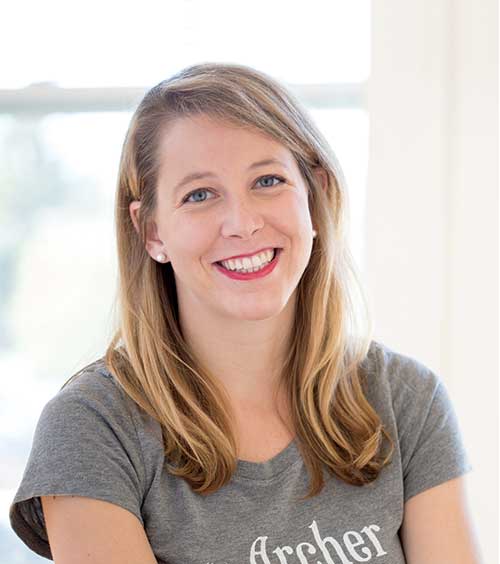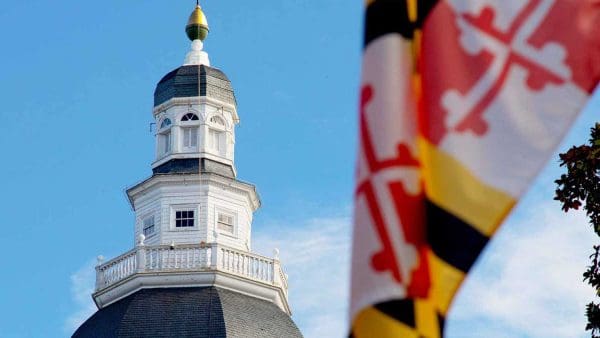

Marian Leitner-Waldman ’09 (left) aims to remake the model for the wine business. Oh, and maybe help save the planet, too.
The company she co-founded and now runs on her own—Archer Roose, based in Boston—makes wine and sells it in 30 states. In its two short years of existence, the winery has grown by 200 percent annually and now sells close to 1.5 million cans of wine per year.
That’s right. Cans. Of wine.
It sounds like a tough sell, but Leitner-Waldman says canned wine is an idea that has found its vintage, and will soon make a major dent in the $60 billion-per-year U.S. wine market. Early signs are that wine in swiggable cans is a hit with millennials, who enjoy alcohol but who worry about the shape of the Earth.
“It’s a very generational thing,” she says. “We do a lot of partnerships with early adopters who are modern and relevant, as well as entertainment outlets and restaurants.” The latter like the idea that Archer Roose’s 250-mL cans save greatly on the waste often associated with traditional 750-mL bottles.
“Most wine in restaurants is sold by the glass, not the bottle,” Leitner-Waldman says. “From the point when that glass is poured, the clock is ticking for what’s left in the bottle.” You only have 24 hours to use it before you have to pour the remainder—and the money you paid for it—down the drain. Bottom line: Small cans make strong economic sense for retail food and wine sellers.
Archer Roose—its online motto is “splendory without snobbery”—advertises on NPR but relies more on word-of-mouth via wholesale channels. The company hopes that its eco-friendly processing and packaging can convince wine traditionalists to give its cans a shot.
Because the company ships its wine from countries including France and Italy in a 24,000-liter bag called a flexitank, and then packages it in kegs and cans once it reaches the U.S., its carbon footprint is up to 80 percent less than that of traditional wineries, which ship filled bottles across oceans in ships that bear the extra weight. Archer Roose buys grapes from only low-impact vintners. What’s more, its cans are more readily recyclable than glass bottles.
All of which makes sense, given the background of the company’s CEO. Leitner-Waldman, 32, spent her post-Hopkins years working to make the world a better place. She’d always had what she calls “a side hustle,” which in her lexicography means a way to help others while she goes on with her life.
Her worldly bent was formed as a teenager as she watched the World Trade Center’s twin towers burn and crash. “After 9/11, it was hard not to see things globally,” she says. She went on to earn a bachelor’s degree in international studies at Hopkins, sharpening her business development chops by taking part in university entrepreneurship competitions.
After graduation, she helped put together public-private partnerships for a financial firm and the World Bank. But she soon grew skeptical of such schemes. “I realized I needed to do something meaningful in my career that touches people.”
Enter canned wine.
She and her husband, David Waldman, a product manager for a software company, came up with the idea not long after meeting at a social entrepreneurship competition in 2012. At the time, Waldman ran a winery called Pheasant’s Tears.
For the new wine company’s name, the couple landed on the name of a 19th-century New York socialite who had been shamed over a sex scandal, but who went on to travel the world and wow new friends with her hospitality. “We loved the rebelliousness, but also the ability to bring people together,” says Leitner-Waldman.
After a few years of planning, Leitner-Waldman took the reins. She eschewed typical winemaking models, such as growing wine grapes or packaging bulk wine made by others. Instead, Archer Roose buys grapes from vintners, rents out wineries, and then makes the wine. This allows it to make a Prosecco in Italy, a Malbec in Argentina, and a rosé in Provence.
“Experts are saying that the canned market will be worth about $1 billion by 2022,” says Leitner-Waldman. “We see attitudes changing. This is a trend that’s going to endure.”




